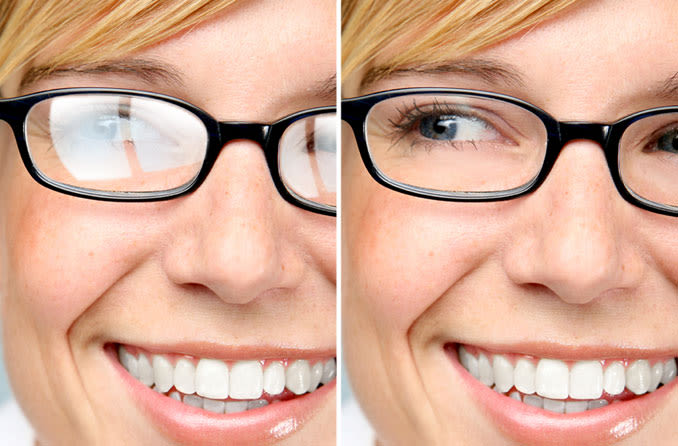High-definition spectacle lenses

Do you have 20/20 vision when you wear your glasses but still feel dissatisfied with how you see? You might benefit from high-definition spectacle lenses.
Sometimes, higher-order aberrations can affect your vision, even if your prescription glasses fully correct your nearsightedness, farsightedness and/or astigmatism. These aberrations may be due to the optical characteristics of your eyes or can be caused by the optical limitations of conventional lenses.
But there's good news: Recent advances in lens manufacturing have made possible new high-definition eyeglass lenses that correct these aberrations, potentially giving you sharper vision than you've ever had before with spectacles. These lenses are designed to provide sharper vision in all lighting conditions and reduce glare for nighttime driving and other night vision tasks.
High-definition versions of high-index lenses, progressive lenses and photochromic lenses are currently available in some markets.
Keep in mind that for the best vision and comfort, all high-definition eyeglass lenses should include anti-reflective (AR) coating to eliminate distracting reflections.
Free-form lenses
The most popular high-definition lenses are called free-form lenses. The term "free-form" refers to an advanced manufacturing process that reduces higher-order aberrations such as spherical aberration that occur in lenses created with traditional eyeglass lens manufacturing tools and processes.

High-definition lenses are designed to provide sharper vision in all conditions and reduce glare for nighttime driving.
With free-form lenses (also called digital high-definition lenses), the fabrication of the lenses from wearer's spectacle prescription is optimised with a computer-controlled manufacturing process that is much more precise than conventional methods used to produce prescription eyeglass lenses.
In fact, free-form technology can create lenses in power increments of 0.01 diopter (D), compared with 0.125 to 0.25 D increments produced by conventional lens tooling.
The fabrication of some digital, free-form lenses may take into account factors that are unique to you, including:
How the lenses are positioned in front of your eyes when in the spectacle frames you've chosen
The angle between the eye and the back surface of the lens in different positions of gaze (for example, when you are looking off to the side vs. straight ahead)
The frame size
The position of your pupils within the frame
With these and possibly other factors taken into account during lens design and fabrication, high-definition lenses offer an unprecedented degree of customisation. This may reduce or eliminate certain higher-order aberrations and provide sharper image quality, better peripheral vision, improved contrast sensitivity, and less glare at night.
Are you a candidate for high-definition lenses?
Virtually anyone who wears glasses is a good candidate for high-definition spectacle lenses. But people with high refractive errors may notice greater benefits than people with only mild prescriptions.
Perhaps one of the best indicators that high-definition eyeglass lenses might be a good choice for you is if your eye care professional says you have healthy eyes and 20/20 vision, but you are bothered by glare or your vision seems indistinct.
If you are dissatisfied with the clarity of your eyesight with your current glasses, ask your eye care professional if high-definition eyeglass lenses might provide sharper vision.
Cost of high-definition lenses
Because of the sophisticated technology used to design and fabricate high-definition eyeglass lenses and the added time and equipment required to fit them, expect to pay a premium for these lenses compared with conventional lenses of the same material.
Ask your eye care professional for details about the availability and cost of high-definition lenses at your next visit.
FIND AN OPTICIAN OR OPTICAL SHOP NEAR YOU: Our locator lists nearby opticians and optical shops to make booking appointments easy.
Page published on Wednesday, 16 March 2022






